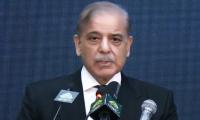ISLAMABAD: A day after the Supreme Court of Pakistan disposed of Pakpattan DPO case following an unconditional apology from the Punjab chief minister and others, the prime minister on Tuesday removed the provincial police chief in violation of the superior judiciary’s rulings in AD Khawaja and Anita Turab cases and in breach of the PTI’s commitment of depoliticising the bureaucracy.
Informed sources said the transfer order of reputed IGP Muhammad Tahir Khan was issued when he refused to change some police officers in the province on the whims and wishes of the government.
Khan was appointed the IG Punjab by the PTI government only a month ago. Geo News reported Information Minister Chaudhry Fawad Hussain as saying that the IGP was not implementing the government directions and was thus removed.
Through this, he added, we have sent a message to the bureaucracy that the PTI government wants business. It may be noted that if an officer violates a lawful direction, he can be proceeded against under the efficiency and discipline rules for misconduct. Therefore, the IGP should have been charge-sheeted if he disobeyed the government, as claimed, to let the public know precisely which directions he disobeyed.
Removing an officer without completion of tenure is a violation of the Supreme Court’s ruling in Anita Turab case and the Sindh High Court’s directions in AD Khawaja case.
Punjab Chief Minister Usman Buzdar may be in the soup if this case attracts the attention of Chief Justice of Pakistan. Sources said IGP Punjab Tahir Khan, whose transfer order had been suspended by the Election Commission of Pakistan, drew the ire of chief minister and prime minister after he refused to transfer the DPOs of some districts.
Sources said some ruling party MPs were not happy with the DPOs of their respective districts and thus wanted them transferred. The IGP, it is said, was asked to remove these officers but he resisted and said they could not be transferred like this. He reportedly offered that if there was any complaint against the officers that could be inquired into but transferring an officer on mere complaint would not be possible.
Additionally, according to the sources, the Punjab police chief was also under pressure to remove those police officers who were named in the Model Town case but were given a clean chit by the JIT. The IGP, it is said, was of the view how could he remove the police officers who’d already been cleared by the JIT.
After the IGP refused to dance to the tunes of political rulers, he was transferred.
Interestingly, his transfer was made a day after the SC disposed of the matter relating to the transfer of DPO Pakpattan after accepting written apologies from the Punjab chief minister, Ahsan Jameel Gujar and former IG Punjab Kaleem Imam.
The top court accepted the written apologies on the condition that such an incident would not happen in future. The CJP had warned of re-opening of the matter if such a thing happened again.
“Go and tell the prime minister that I am unhappy with him. Is this what the Naya Pakistan is supposed to be?" the chief justice said while addressing the Punjab advocate general. Before this, in the Anita Turab case, the SC has already laid down the principles to save the government servants from politicisation.
On the issue of tenure and posting and transfer, the Supreme Court had directed, “When the ordinary tenure for a posting has been specified in the law or rules made thereunder, such tenure must be respected and cannot be varied, except for compelling reasons, which should be recorded in writing and are judicially reviewable.”
In the AD Khawaja case, the SHC had made it mandatory for the government to follow the judgement in the Anita Turab case under which an IGP could not be removed from his post before three years of his appointment.
Like the incumbent IGP Punjab, AD Khawaja’s differences with bigwigs of Sindh's ruling party were also related to issues of removal/posting of police officials on the wishes of government. The PPP-led Sindh government had twice tried to remove Khawaja as IG Sindh but the SHC had ruled that he would continue to function as the provincial police chief.
That call widened on Wednesday to include a halt to all shopping for one day
This year, 78 nations and semi-autonomous territories have at least one billionaire on list, same number as last year
Afghans who hold PoR cards from UN refugee agency, UNHCR, are also to be moved outside capital and neighbouring city...
Film was announced last year and makers gave fans glimpse of it by dropping a teaser on April 1
It is one of most striking economic defeats suffered by America in more than 40 years covering international affairs,...
These centres aim to provide specialised education, training and rehabilitation for children with autism







